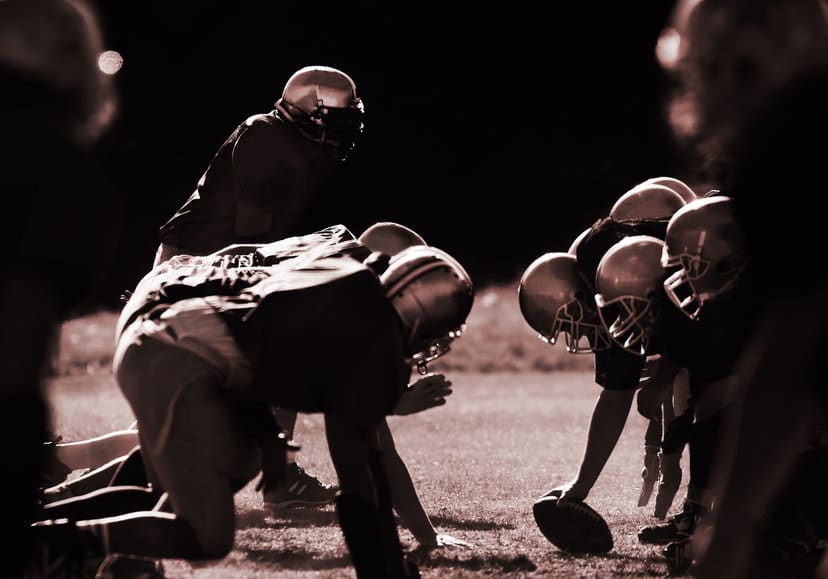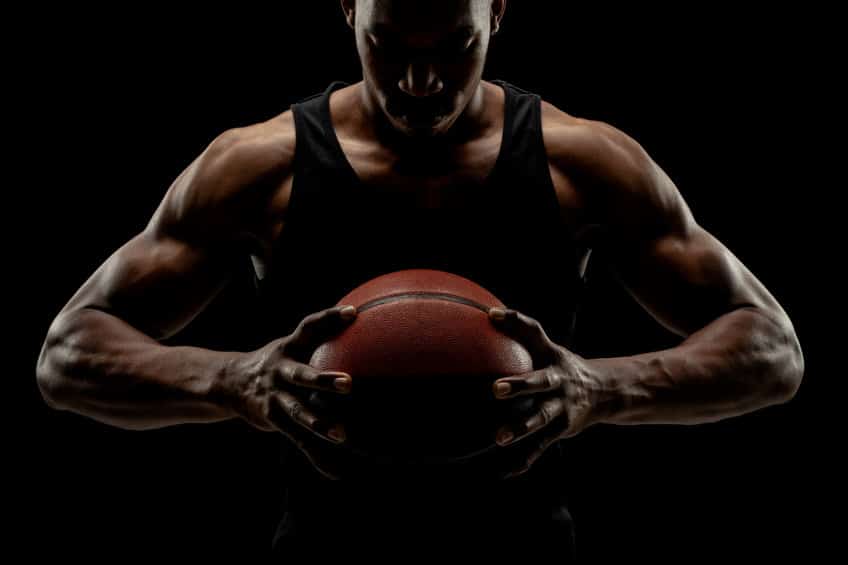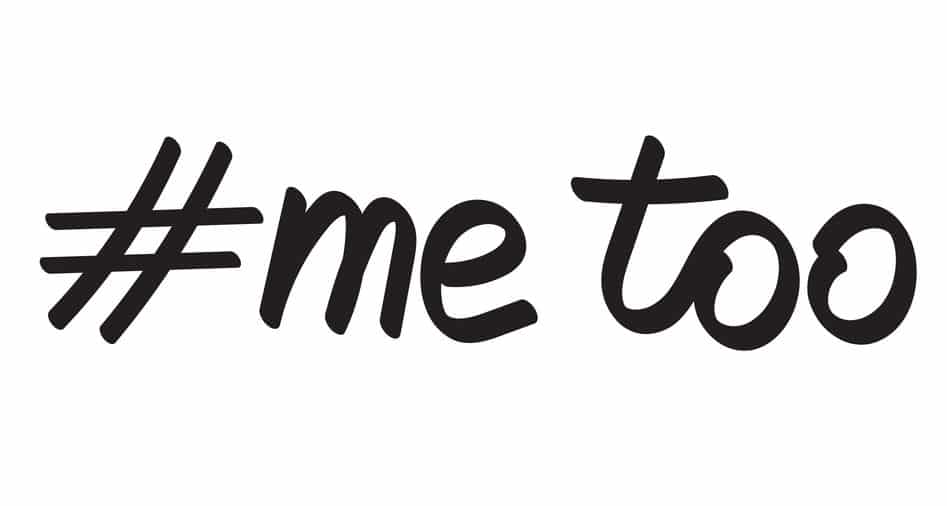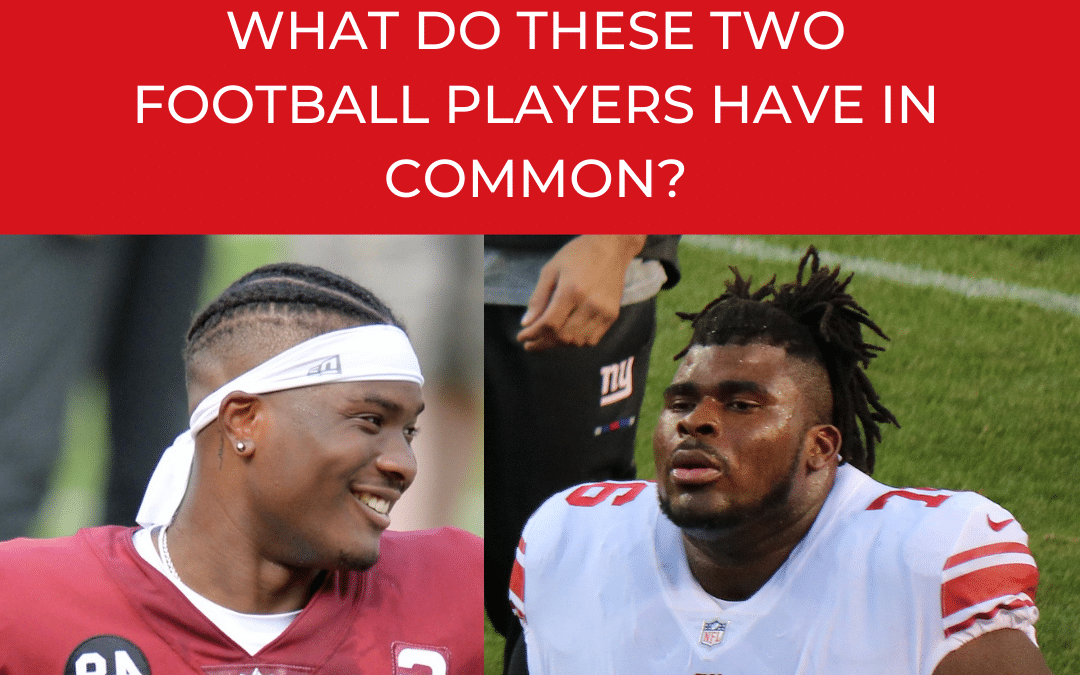This article on male domestic abuse in elite sport was edited 4/5/22 following tragic death of Dwayne Haskins
One in seven men are the victims of domestic abuse.
That means there will be an average of two men in an NBA roster – or seven in a full NFL roster – who are victims within a toxic relationship. Given the lack of these stories in the media, it’s fair to say they are probably struggling in silence.
Look it up on Google! Amidst pages and pages of mugshots of male domestic abusers within America’s sporting elite, you will likely find only two cases where a female has been charged for abusing their male elite athlete partner: those of the late Dwayne Haskins and D.J. Fluker.
This article focuses on the world of male elite sport, and argues that the abuse of elite male athletes is much more widespread than people would think. It also looks at why this demographic is actually targeted by abusers, and what stops those victims from talking.
But before I delve into the research, present my conclusions and suggest how male elite athletes can fight back against abuse, I want to summarize the two cases mentioned above:
Haskins and Fluker assaulted in separate domestic abuse incidents
Pittsburgh Steelers quarterback Dwayne Haskins, who tragically lost his life since the publication of this article, allegedly lost part of a tooth when his wife Kalabrya Gondrezik-Haskins assaulted him in a Las Vegas hotel room in July 2021. Police reports claim that Haskins received ‘substantial’ injuries that included a split lip and dental injuries (although the player refuted the tooth loss claims in an Instagram post).
Gondrezik-Haskins was charged with battery and domestic violence, but the pair, who married in March, are still together.
A year earlier, former Baltimore Ravens offensive lineman D.J. Fluker was assaulted by his long-term partner Kimberly Davis. Davis was charged with second degree assault and destruction of property. And this was not an isolated incident. Media sources claim to also have video footage of earlier assaults by Davis on Fluker in which she is seen striking the player repeatedly. Fluker didn’t file a report of these incidents.
Bear in mind that domestic abuse is not always physical, so there will be many more examples of emotional abuse and coercive control.
How common is male domestic abuse?

The most widely cited estimate of the prevalence of male domestic abuse in one in seven (compared with one in four women).
In the largest in-depth study of its kind, 344 UK male victims of domestic abuse took part in a joint study by Durham University and Respect, a domestic abuse organization. The vast majority of these men were reporting female-perpetrated abuse by an existing or former intimate partner or spouse.
Information collected from phone calls and emails revealed reports of men being punched in the face, pushed down the stairs, strangled, having bottles smashed over their heads or in their faces and being threatened with knives. Several murder threats and one murder attempt were also recorded. Some men reported that their abuser had been violent to pets or had hit or bitten children.
There were also accounts of emotional and financial abuse. Men claimed partners had built up tens of thousands of pounds of debt in their name, through buying expensive handbags and pets, while denying them money for a haircut.
Some were accused of controlling access to immigration documents and joint bank accounts while keeping their own finances separate. Children were often used as a tool of control, according to the reports collected.
It might be assumed that because elite athletes need to be mentally and physically tough to succeed that they are less likely to be the victims of abuse, especially within their own homes.
Recent research casts doubt on that assumption.
Sexual abuse inside and outside of elite sport
A 2020 study, published in the German Journal of Exercise and Sport Research, took the unusual step of studying the prevalence of elite athlete sexual abuse both within and outside of the sport context. While there have been many studies focusing on the abuse of athletes perpetrated by coaches, this study recognised that athletes also have lives outside of sport.
Of 672 elite male athletes, 30% revealed that they had been sexually abused outside of sport (v 23% who had been sexually abused within sport). A shocking 10% reported severe sexual abuse outside of sport. And this study focused only on sexual abuse! It is therefore clear that the abuse of male elite athletes outside of sport, including in domestic situations, is vastly under-reported.
So, why don’t we hear about male domestic abuse?

In my experience of helping elite performers (sports people, celebrities, CEOs, etc.), I have found that there are huge barriers that prevent them talking candidly about being abused by an intimate partner. These include shame, manipulation by the abuser and fear of a hostile reception by the public.
Shame and the macho culture of elite sport
Elite sport has a reputation for encouraging toxic masculinity, with the NFL particularly targeted with this accusation. From early in their careers, male sports players are coached to be physically and mentally aggressive.
Any suggestion that they are experiencing difficulties, relationship or otherwise, will be immediately seized on as a show of weakness.
Now, place a domestically abused male athlete in this hyper macho sports environment and we begin to see why the ‘one in seven’ statistic appears not to be reflected in the NFL, NBA or any other elite sporting organization.
Abused men I have spoken to have felt ashamed by the abuse, and worried that revealing the details would reflect negatively on them. They might describe feeling ‘like a girl’ or that they were ‘in a mess.’
There are glimmers of change in the macho culture of elite sport. In 2016, The NBA became the first professional sports organization to hold athletes accountable for domestic violence, following up its words with action by suspending Sacramento KIngs player Darren Collison.
However, the overwhelming focus appears to be on males as perpetrators. This positive step forwards must be combined with a recognition that an average of two players in every roster will be a domestic abuse victim. Only then might players feel empowered to speak up.
Amidst all of this, we should also recognise the additional barriers experienced by those athletes who may be trapped within toxic relationships while hiding their gender or sexual identity from the public. More research is needed in this area.
The abuser’s mindset
The second big reason why male elite athletes remain silent about the abuse they experience is gaslighting and coercive control from their abuser. Because many, if not most, domestic abusers are narcissists.
As detailed in my book, Learning How To Leave, the link between domestic abuse and narcissistic personality disorder (NPD) is strong. Narcissists actively seek people who will validate them, often through the provision of wealth and status.
Elite athletes are a prime target for these parasites, and the wealthier and more famous they are, the more attractive they become. Since they lack empathy and remorse, people with NPD find it easy to lie and deceive their way into their targets’ lives. Once there, they can build their perfect life, using the partner and his resources as a source of food.
They will resort to any and all means to maintain their power. This will include threatening to end the athlete’s career and destroy their reputation by making false accusations against them. Even if an athlete was brave enough to expose his vulnerabilities, can we really be sure, in today’s climate, that he wouldn’t be dropped like a stone if there was even a whiff that he might not be the innocent party he claims to be?
That brings us to the third big reason why male elite athletes choose to stay silent: the zeitgeist or ‘spirit of the time’.
The zeitgeist – #MeToo and trial by social media

The conversation around domestic violence is so slanted towards the male perpetrator/female victim dynamic, that abused men face huge challenges in freeing themselves.
Any tool which has the power to liberate can also become a weapon. The #MeToo movement and its global mouthpiece – social media – has undoubtedly empowered many women to leave abusive relationships and achieve justice. This is clearly a wonderful thing for them. However, it has also alienated countless others who feel unable to speak out – including those experiencing male domestic abuse.
Worse still, social media is an arena within which narcissists thrive. After all, they are the experts in manipulating images and in crafting stories to captivate other people. The more publicity they get, the better they feel. The more validation they receive for their story, the more they convince themselves of its reality.
If the narcissist is female, they have another advantage. Because in cases of domestic violence, the male is now de facto the perpetrator, and even when both parties are guilty of abuse, somehow the abuse by the male is seen as worse.
If you don’t believe me, take the example of Jay-Z and Solange Knowles. Following the now infamous elevator incident, during which Knowles was filmed assaulting Jay-Z, the Twitter response can be largely summed up by the words ‘LOL’ and ‘LMAO’. Now imagine if the footage had been of Eric Carter (Jay-Z’s brother) attacking Beyonce.
It’s the same in the acting world, post-Harvey Weinstein. Take the feud between Johnny Depp and Amber Heard. There is little doubt that both Heard and Depp had been abusive within their toxic relationship, yet filmmakers kept Heard on in the Aquaman sequel, while Depp was axed from the Fantastic Beasts franchise.
The murky case of coach Zach Smith
In football, no case sums up the confusing and destructive crash zone between personal relationships, elite sport and the zeitgeist as that of former Ohio State coach Zach Smith and his ex-wife Courtney Carano Smith.
Now, please don’t take this article as me taking Smith’s side. But, in reading the various text messages, admissions, retractions, Tweets and police reports in this very public case, all that is crystal clear is that this was one very toxic and messy relationship.
But was there really one perpetrator and one victim? That’s hard to swallow. I speak from experience when I say there is rarely one side to any domestic violence story.
Zach maintains his innocence. Courtney insists she is telling the truth. As outsiders, that’s all we can know.
Yet social media has given the public at large the power to attack and sometimes destroy a person based on the belief of one person’s version of events. Commentators have declared Smith guilty based mostly on speculation and prejudice.
And following a trial by social media, the punishment is exile. Athletes and celebrities are ‘canceled’. Their voices are silenced. Their means of earning are denied. Their post-sport careers are cut short. While there is no excuse for male athletes to ever abuse their partners, it must be recognised that those partners often hold a sword over the athlete’s career and reputation.
It would be naive to think that all of them wield this weapon only in self-defense.
Another tactic of the narcissist is to secure and build their future supply of resources. They are always looking to move up the food chain, so they will be busy nurturing other relationships. If one partner starts causing them too much trouble, they will drop them and move on without a shred of remorse.
And if any owners of elite sports teams are reading this, my message to you is beware! To an entitled narcissist, no one is out of their league.
Winning the toughest battle of all
If you are a male elite athlete and you are in an abusive relationship, there is a way out. But you will need support and courage to find it.
You will need to confront and overcome any shame you feel about your abuse. This may mean working with a qualified therapist or counselor.
You will also need to carefully leave your toxic relationship when it is safe for you to do so. As detailed in my book, Learning How To Leave, there is a tried and tested process for getting unhooked – and staying free. If you are involved in a criminal or legal process, you should collect photographic and video evidence of abuse to support your case.
And if your life is in the public eye, you will ultimately need to tell your story. Fortunately, #MeToo is not the only liberating trend in popular culture. There is also a recognition of a male mental health crisis, and the zeitgeist is also urging men forward to talk more openly about their mental health. Men are beginning to respond to that call, but we need more male elite athletes to join them.
Men must work together as a team and push for the social and professional support they need to open up about their experiences of domestic abuse. Only then will the full extent of the iceberg of male elite athlete domestic abuse start to become visible.
If you are a male athlete, then heed this: being stuck inside a toxic, abusive relationship will damage and could destroy your mental health. This will affect your performance on the field or court, and you will face the eventual ruin of your career. If you don’t find a way out, it could ruin your life. It could even kill you. It’s as simple as that.
If abused male athletes are going to take the most courageous step of their lives, they are going to need support. That means they will need to be believed – or at least given a fair hearing. Can our society rise to that challenge?
Main image credits: Dwayne Haskins, Righanred & D. J. Fluker, Jeffrey Beall. Graphic created by MPA Mind and is licensed under Creative Commons 4.0.

